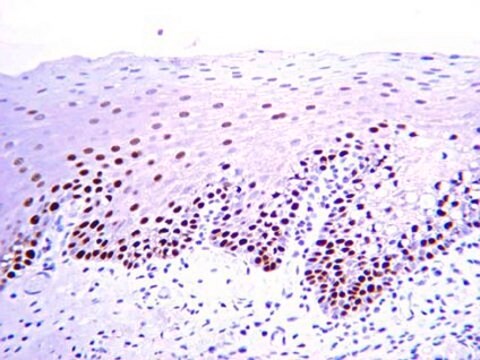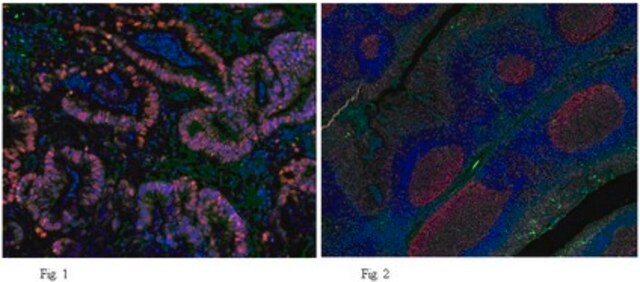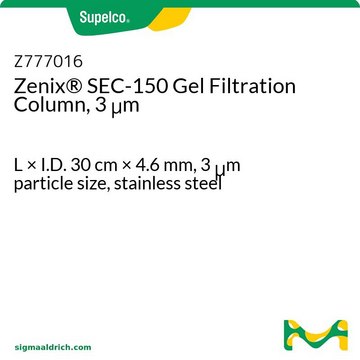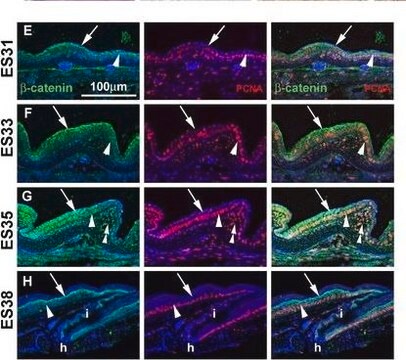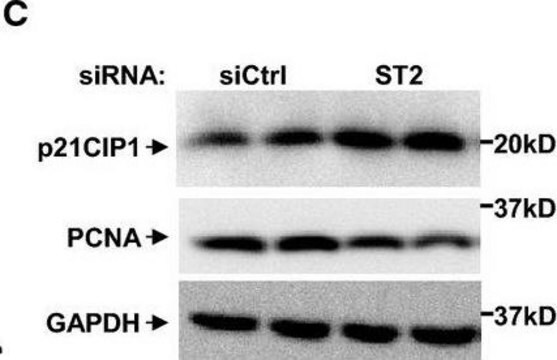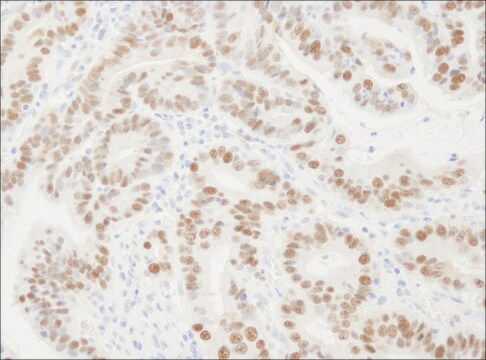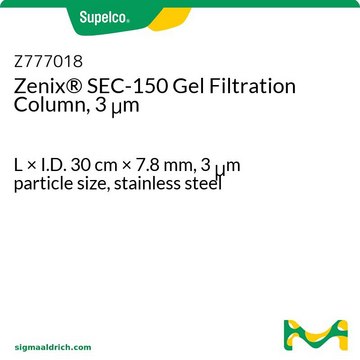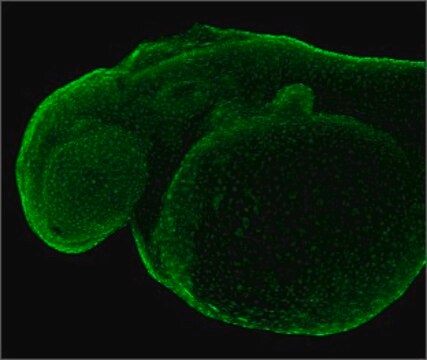ZMS1194
Anti-PCNA Antibody, clone PC10 ZooMAb® Mouse Monoclonal

recombinant, expressed in HEK 293 cells
Synonim(y):
Antygen jądrowy komórek proliferujących
About This Item
Polecane produkty
pochodzenie biologiczne
mouse
Poziom jakości
rekombinowane
expressed in HEK 293 cells
białko sprzężone
unconjugated
forma przeciwciała
purified antibody
rodzaj przeciwciała
primary antibodies
klon
PC10, recombinant monoclonal
linia produktu
ZooMAb® learn more
Formularz
lyophilized
masa cząsteczkowa
calculated mol wt 28.77 kDa
observed mol wt ~33 kDa
oczyszczone przez
using protein G
reaktywność gatunkowa
mouse, rat, human
opakowanie
antibody small pack of 25 μL
charakterystyka ekologicznej alternatywy
Waste Prevention
Designing Safer Chemicals
Design for Energy Efficiency
Learn more about the Principles of Green Chemistry.
rozszerzona walidacja
recombinant expression
Learn more about Antibody Enhanced Validation
metody
immunocytochemistry: suitable
immunohistochemistry: suitable
western blot: suitable
izotyp
IgG2aκ
sekwencja epitopowa
Unknown
numer dostępu Protein ID
numer dostępu UniProt
kategoria ekologicznej alternatywy
Warunki transportu
ambient
temp. przechowywania
2-8°C
informacje o genach
rat ... PCNA(25737)
Powiązane kategorie
Opis ogólny
Specyficzność
Immunogen
Zastosowanie
Oceniane metodą Western Blotting w lizacie komórek HeLa.
Analiza Western Blotting: Rozcieńczenie 1:1000 tego przeciwciała wykryło PCNA w lizacie komórek HeLa.
Testowane aplikacje
Analiza Western Blotting: Rozcieńczenie 1:1000 z reprezentatywnej partii wykryło PCNA w lizatach komórek C2C12 i C6.
Analiza immunohistochemiczna (parafina): Rozcieńczenie 1:100 z reprezentatywnej partii wykryło PCNA w wycinkach tkanki ludzkich migdałków.
Analiza immunocytochemiczna: Rozcieńczenie 1:100 z reprezentatywnej partii wykryło PCNA w komórkach HeLa.
Uwaga: Rzeczywiste optymalne rozcieńczenia robocze muszą być określone przez użytkownika końcowego jako próbki, a warunki eksperymentalne mogą się różnić w zależności od użytkownika końcowego.
Opis wartości docelowych
Postać fizyczna
Przechowywanie i stabilność
Inne uwagi
Informacje prawne
Oświadczenie o zrzeczeniu się odpowiedzialności
Nie możesz znaleźć właściwego produktu?
Wypróbuj nasz Narzędzie selektora produktów.
Kod klasy składowania
11 - Combustible Solids
Klasa zagrożenia wodnego (WGK)
WGK 1
Temperatura zapłonu (°F)
Not applicable
Temperatura zapłonu (°C)
Not applicable
Wybierz jedną z najnowszych wersji:
Certyfikaty analizy (CoA)
It looks like we've run into a problem, but you can still download Certificates of Analysis from our Dokumenty section.
Proszę o kontakt, jeśli potrzebna jest pomoc Obsługa Klienta
Masz już ten produkt?
Dokumenty związane z niedawno zakupionymi produktami zostały zamieszczone w Bibliotece dokumentów.
Nasz zespół naukowców ma doświadczenie we wszystkich obszarach badań, w tym w naukach przyrodniczych, materiałoznawstwie, syntezie chemicznej, chromatografii, analityce i wielu innych dziedzinach.
Skontaktuj się z zespołem ds. pomocy technicznej